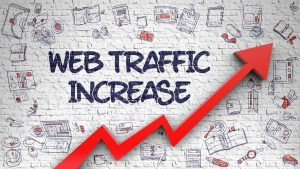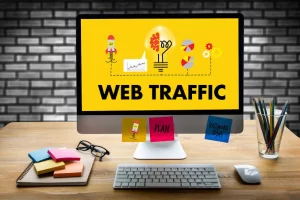Best High Protein Foods, According to a Dietitian

best high protein foods
To experience satisfaction after eating, support muscle growth, strengthen bones, and enhance immune health, it is crucial to incorporate protein into your diet. While carbohydrates and healthy fats contribute to overall well-being, the significance of protein cannot be overstated as it plays multiple critical roles in the human body.
In fact, a 2018 study published in Frontiers in Endocrinology demonstrated the numerous benefits of higher-protein diets including weight management promotion, blood sugar control, and increased calcium absorption to ultimately support bone health.
When it comes to promoting your overall health and wellness, it is essential to ensure that your diet includes a sufficient amount of protein.
What Is Protein?
If you have ever tried to lose weight or had conversations about healthy eating, chances are you’re familiar with the term protein. While many people understand the importance of protein, they may not fully comprehend its composition.
The proteins we consume consist of various amino acids, which serve as the basic building blocks. These amino acids play a crucial role in numerous bodily functions, ranging from hormone production to the creation of specific proteins. Therefore, when we digest protein-rich foods like hamburgers or lentil soup, our cells absorb and utilize the amino acids for various purposes.
The National Institutes of Health categorizes the 20 amino acids that form proteins into three groups: essential, nonessential, and conditional.
Nonessential amino acids: Our body has the capacity to produce nonessential amino acids, meaning it’s not necessary to include them in the diet.
Essential amino acids: Conversely, essential amino acids are beyond our body’s production capabilities and must be sourced from the diet.
Conditional amino acids: Amino acids categorized as conditional become essential during periods of illness and stress, making their essential classification contingent upon specific circumstances.
Our bodies possess the ability to produce nonessential amino acids, making it a choice to include them in our diet. On the other hand, essential amino acids are not internally synthesized and need to be obtained from our diet.
Amino acids categorized as conditional are considered vital under certain conditions like illness or stress, highlighting their dependence on specific situations. Regardless of dietary choices, whether one follows a carnivorous or vegan diet, meeting the body’s requirement for essential amino acids can be achieved by including protein-rich foods in our daily meals.

What Can Protein Do for You?
Protein is often associated with bodybuilders and their quest for perfectly sculpted muscles. However, protein goes beyond being just a weightlifter’s best friend. In fact, the amino acids constituting protein serve various vital functions in the body.
- Facilitates a sense of fullness, potentially aiding in weight-management objectives
- Might lower the likelihood of developing elevated blood pressure
- Assists in the process of injury recuperation
- Diminishes the potential for sarcopenia occurrence (age-related decline in skeletal muscle)
- Contributes to the maintenance of a resilient immune system
How Much Protein Do You Need?
While protein stands as a crucial dietary element, it’s not synonymous with consuming copious amounts daily. The required protein intake hinges on factors such as weight, age, gender, and health status.
As a general guideline, most healthy adults should aim for 0.8 grams of protein per kilogram of body weight. This equates to around 55 grams per day for an average-weight sedentary man and 45 grams per day for an average-weight sedentary woman.
If you engage in intense physical activity, are pregnant or nursing, recuperating from specific injuries or surgeries, or are in an older age bracket, you might need to elevate your protein intake. In line with a 2020 Advances in Nutrition study, experts emphasize that older individuals necessitate increased protein to uphold and build muscle mass.
:max_bytes(150000):strip_icc():format(webp)/image-5-9-4ec4dc263eff4e5e8b11963fc8081b13.jpg)
8 Best High-Protein Foods
You may be surprised to learn that protein is present in many of the delicious foods you likely consume regularly.
While vegetables and rice offer smaller quantities of this essential nutrient, there are several other highly proteinaceous foods that excel at fueling your body when consumed as part of a wholesome diet.
To make your selection easier, here are eight exceptional food options packed with protein for your indulgence.
1. Lean Beef
A mere 3-ounce portion of 93% lean ground beef boasts an impressive 22 grams of protein, making it a superb protein source for various dietary needs. Yet, the benefits of including beef in your diet extend beyond protein.
This savory meat is a rich reservoir of vital nutrients such as zinc, indispensable for bolstering your immune system’s defenses, and iron, a critical component in ensuring efficient oxygen transport throughout your body.
For a delightful culinary experience, contemplate relishing a mouthwatering Skillet Steak with Mushroom Sauce, a perfect harmony of tender steak seared to perfection and a luscious mushroom sauce that tantalizes the taste buds.
Alternatively, bask in the comforting embrace of a Slow-Cooker Beef Stew, where succulent beef mingles with an array of hearty vegetables, creating a soul-soothing, nutrient-packed meal that’s perfect for any occasion. Incorporating beef not only satisfies your palate but also nurtures your body with a wealth of essential nutrients.
2. Chicken

With a substantial 27 grams of protein in a 3-ounce serving of skinless chicken breast, chicken stands out as a versatile dinner essential for many. It excels in the protein department, aiding in muscle development and overall health.
Preparing chicken can be a delightful culinary experience; consider whipping up a simple yet flavorful Baked Lemon-Pepper Chicken, where zesty citrus meets savory spices for a delectable dish.
Alternatively, savor the richness of Creamy Parmesan Garlic Mushroom Chicken, combining creamy textures with umami flavors, elevating weeknight dinners into a protein-packed and mouthwatering affair.
3. Salmon

Salmon is consistently regarded as one of the finest high-protein foods by dietitians. A 3-ounce serving of cooked salmon offers an impressive 21 grams of protein, making it an excellent choice for those seeking to increase their protein intake.
What sets salmon apart is its rich content of omega-3 fatty acids, notably EPA and DHA, which promote heart health and cognitive function. Salmon is also a source of vital nutrients, including vitamin D, vitamin B12, selenium, and niacin.
Its versatility in cooking methods and delicious flavor make it a favorite among those aiming to enhance their protein consumption while enjoying a nutritious and delectable meal.
4. Eggs

Eggs are consistently lauded as one of the finest high-protein foods by dietitians. Each large egg packs around 6 grams of protein, providing a convenient and cost-effective means to boost your daily protein intake.
Beyond protein, eggs are nutrient powerhouses, offering essential vitamins like B12 and D, as well as vital minerals including selenium and choline. Their versatility in the kitchen, from scrambled and poached to baked into various dishes, makes them a dietary staple.
Additionally, eggs promote satiety, aiding in weight management, and contain leucine for muscle building. This nutritional powerhouse is a dietary cornerstone recommended by nutrition experts.
5. Peanut Butter

Peanut butter is a top high-protein food recommended by dietitians. Just two tablespoons contain approximately 8 grams of protein, making it a convenient plant-based protein source.
It also provides healthy fats, fiber, and essential nutrients. Peanut butter’s versatility and energy-boosting properties make it an excellent addition to various meals and snacks. However, choosing natural varieties with minimal additives is essential for optimal health benefits.
6. Pasta

Pasta is not typically considered one of the best high-protein foods by dietitians, as it is primarily a source of carbohydrates.
While pasta does contain some protein, the protein content is relatively low compared to other sources like meat, poultry, fish, eggs, legumes, and dairy products.
To increase the protein content of pasta-based meals, it’s common to add protein-rich ingredients like lean meats, tofu, beans, or cheese. However, pasta can still be a part of a balanced diet when combined with other protein sources and nutritious ingredients.
7. Low-Fat Cottage Cheese

Low-fat cottage cheese is highly regarded by dietitians as one of the best high-protein foods. It offers a substantial protein punch while being low in fat.
A half-cup serving can provide about 14 grams of protein, making it an ideal choice for muscle maintenance and weight management.
Cottage cheese is also rich in calcium, essential for bone health. Its versatility allows it to be enjoyed alone, in salads, or as a creamy addition to various dishes.
8. Lentils
Lentils are frequently hailed by dietitians as one of the finest high-protein foods, particularly for vegetarians and vegans
Packed with approximately 18 grams of protein per cooked cup, lentils are a potent plant-based protein source.
They also provide a wealth of fiber, essential for digestive health, and are rich in vitamins and minerals, including folate, iron, and potassium.
Lentils are a versatile ingredient, suitable for soups, stews, salads, and side dishes, making them an excellent choice for a well-rounded diet.
Conclusion
These top nine high-protein foods, recommended by a dietitian, offer a diverse range of options for those looking to boost their protein intake. They include animal and plant-based sources, providing essential amino acids, vitamins, and minerals.
Incorporating these foods into your diet can support muscle growth, satiety, and overall health.
Whether you prefer lean meats, seafood, dairy, or plant-based options, these choices can help you meet your protein needs while enjoying a balanced and nutritious diet.

